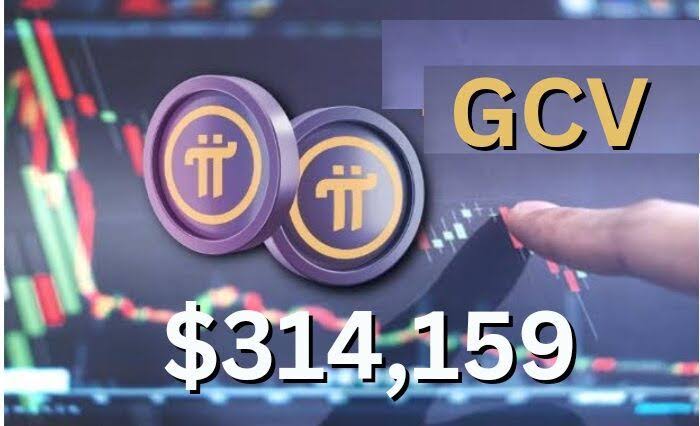 |
| NNPC Group Managing Director, Mele Kyari |
The Nigerian National Petroleum Company Limited might deduct over N1tn in the next six months from the Federation Accounts Allocation Committee, following the choice of the Federal Government to keep sponsoring Premium Motor Spirit, famously called petroleum.
Figures acquired from the oil firm on its sponsorship derivations in 2021 showed that the sum deducted month to month from FAAC by the NNPC was higher during the times of higher unrefined petroleum costs.
This was additionally affirmed by financial specialists, who clarified that the higher the global cost of unrefined petroleum, the higher the sum to be deducted by the NNPC from FAAC.
They likewise expressed that the volume of petroleum consumed in a specific month was contributory to the sum being spent as sponsorship, yet demanded that the main consideration was the worldwide raw petroleum cost.
As the sole merchant of PMS and provider after all other options have run out, the NNPC guarantees satisfactory inventory of refined oil based goods by bringing in the items.
PMS isn’t liberated by the Federal Government, as the cost is sold at somewhere in the range of N162 and N165/liter at filling stations, far lower than the genuine expense of the item.
In June 2021, the Group Managing Director, NNPC, Mele Kyari, had expressed that petroleum cost should be more than N280/liter, while the item had been sponsored and sold at N162/liter since the year before.
The endowment spent on every liter of petroleum consumed in Nigeria is hence recuperated by NNPC through its month to month allowances from its settlements to FAAC.
An investigation of the month to month FAAC allowances in 2021, caught by the NNPC as under-recuperation of PMS/esteem deficit, for example, showed that the oil organization deducted N25.37bn from FAAC in February 2021 when the normal cost of Brent rough was $62.28/barrel.
Yet, in June of that very year when the cost of Brent moved to $73.16, the public oil firm detailed that it burned through N164.33bn on appropriation in that month.
Prominently, among June and November 2021, a time of a half year, the oil firm deducted N888.13bn from FAAC being appropriation spent on petroleum imports. This comes to about N148bn month to month overall.
The normal expense of Brent rough during the half year time frame, as indicated by figures got from Statistica, a worldwide factual firm, was put at $76.4/barrel.
In any case, the cost of Brent has been on the ascent since this year, following endeavors by the Organization of Petroleum Exporting Countries and its accomplices to support the expense of the item.
The cost on Tuesday, for example, was $88.01/barrel as at 8.10pm Nigerian time, an advancement that implied that the NNPC would spend more on endowment this month and ensuing months should oil cost stay high internationally.
Subject matter authorities agree, assuming the oil value stays above $80/barrel, the public oil organization might be causing about N170bn month to month on the normal as sponsorship installments. This will add up to with regards to N1,020,000 in a half year.
The NNPC has been the sole merchant of petroleum into Nigeria, as different advertisers quit bringing in the item because of their powerlessness to adequately get to the United States dollar.
“Obviously, the NNPC will spend more on endowment this year since raw petroleum cost has been expanding and the higher the cost of unrefined, the higher the sum to be spent on sponsorship,” the Chief Executive Officer, Center for the Promotion of Private Enterprise, a monetary research organization. Dr. Muda Yusuf, said.
He added, “truth be told, about N2.5tn may be spent on sponsorship this year, truly intending that with regards to half of that sum could be spent in a half year and this implies tough situations for states on the grounds that the assets will be deducted from FAAC to no one’s surprise.”
Yusuf depicted the inversion of endowment expulsion by the public authority as a strategy somersault that was not really great for the oil area.
He said, “This is one more case of strategy somersault. It likewise mirrors the shortfall of political will to change the oil and gas area. This has been a battle throughout the course of recent many years. Maybe there are dug in and strong interests neutralizing the Petroleum Industry Act.
“These powers have prevailed with regards to improving a significant financial change program. It is a miserable turn of events. This would additionally exasperate the political and strategy hazard of putting resources into Nigeria.
He added, “The oil and gas area is one area that has been famished of speculation for a long time on account of strategy and administrative issues. Unfortunately, when we thought we had turned the corner, we are presently confronted with the obvious truth of a total suspension of a significant instrument of change.
“It is absolutely not great for our insight by financial backers as a speculation objective. It will influence our nation hazard rating. It additionally suggests that the execution of the Act won’t start in the existence of the current organization.
“It is hard to foresee what the succeeding organization will do. In the interim, drawing in interest into the oil and gas space will be amazingly troublesome going ahead.”
Posting different downsides of the suspension of the arrangement to eliminate fuel appropriation, he expressed, “The oil based goods bootleggers, recipients of the monetary spillages in the fuel endowment biological system and their colleagues will keep on grinning to the banks for the following one and half years.
“A few states would battle to pay rates, particularly expresses that are intensely subject to government portion. Some might need to lay off a portion of their work power. Many will battle to meet their monetary commitments as sub-nationals.
“Macroeconomic dangers would become raised as financial shortfall and acquiring essentially outperforms projections in the 2022 spending plan. The CBN might need to keep on covering financing holes through available resources. This obviously has genuine inflationary ramifications. The macroeconomic results would unfavorably affect on the conversion scale, prompting further devaluation of the money.”
Validating this view, private area partners under the umbrella of the Nigerian Economic Summit Group say the endowment being paid by the public authority for Premium Motor Spirit, ordinarily known as fuel, isn’t supportable.
The gathering talked at the send off of the NESG 2022 Macro Economic Outlook report on Tuesday in Abuja named, “The last Mile: Reforms towards huge improvement in public financial results.”
The report features changes that will support the recuperation of the economy and guarantee worked on friendly incorporation.
The Chief Executive Officer, NESG, Laoye Jaiyeola, lauded the public authority for passing the Petroleum Industry Act however focused on the requirement for coordinated effort with basic partners in the oil and gas area to guarantee execution.
He noticed that the proposed fuel appropriation evacuation as specified in the PIA would essentially affect the financial viewpoint for 2022.
Jaiyeola said the proceeded with execution of the fuel sponsorship was not reasonable as it was presented as a transient palliative.
“At the point when the fuel sponsorship was acquainted it was assumed with be a transient palliative, yet is has gone past expected purposes.
“The reality of the situation is that this country can’t bear the cost of a continuation of this appropriation, on account of the ramifications. Nigeria has an income challenge and how we utilize our income matters a ton,” he said.
On his part, the Chairman of the NESG, Asue Ighodalo, uncovered that as at November 2021, 91 million Nigerians were living underneath the destitution line.
He said, “The World Bank assesses that an extra 1,000,000 individuals were driven into neediness in Nigeria among June and November 2021, bringing about a sum of around 8,000,000 individuals being surrendered to destitution in 2021 and carrying our country’s neediness headcount to around 91 million.
With lobbies for the 2023 general races starting to show, the NESG supervisor anticipated that there would be expanded spending during the year because of the impending political race.
This he said, could prompt fixing of money related approaches by the public authority, consign center around the economy and result in stagnation of recuperation.














